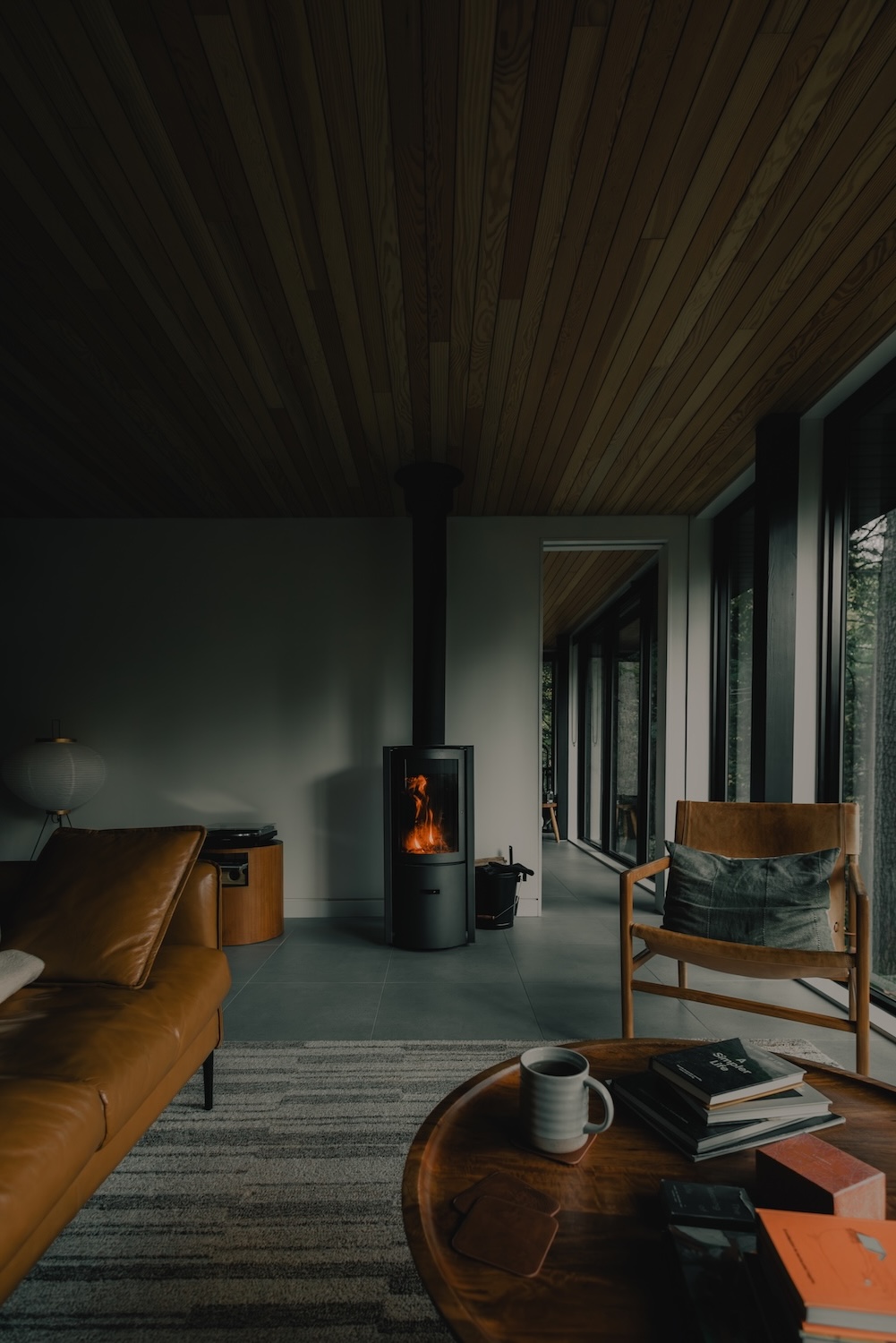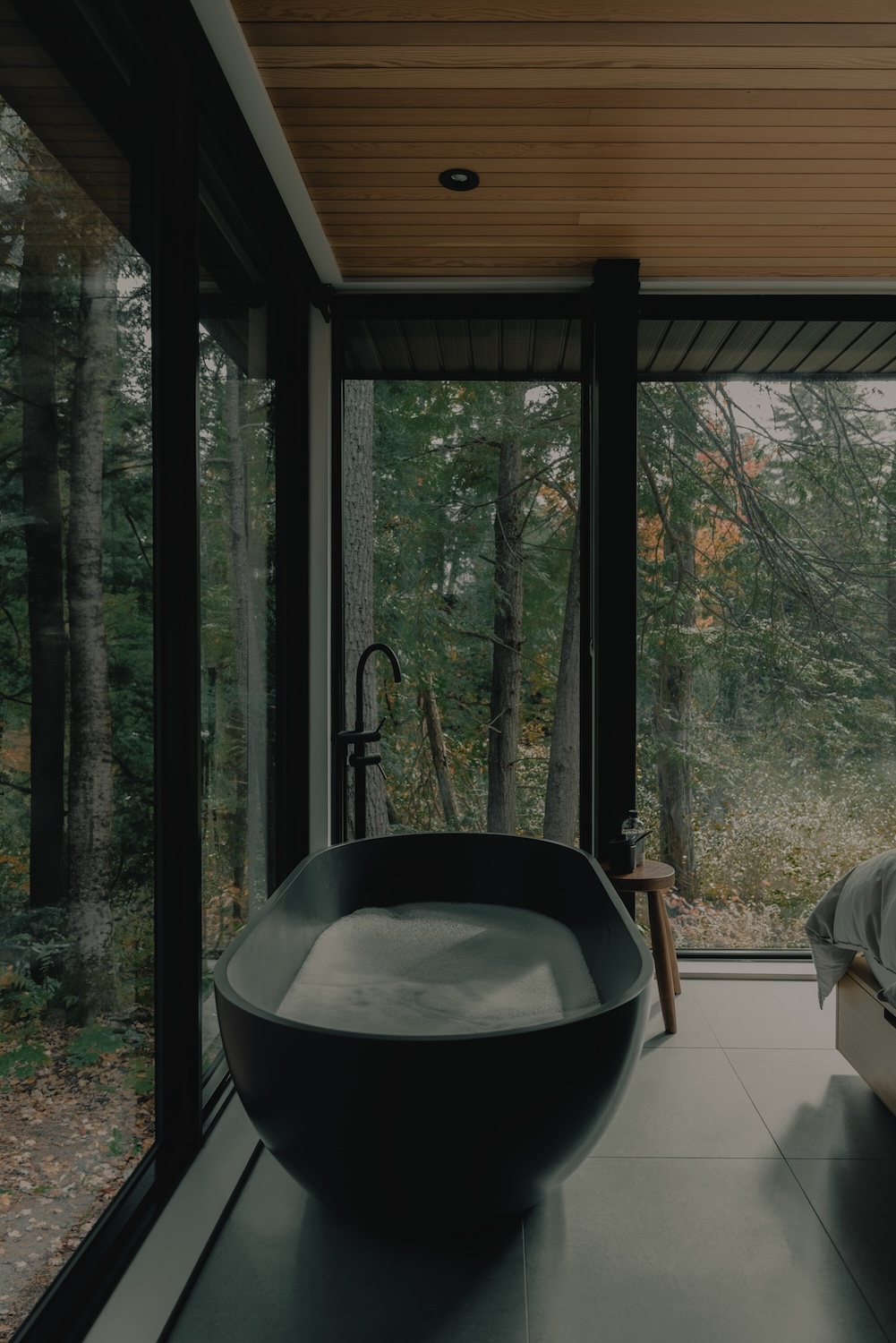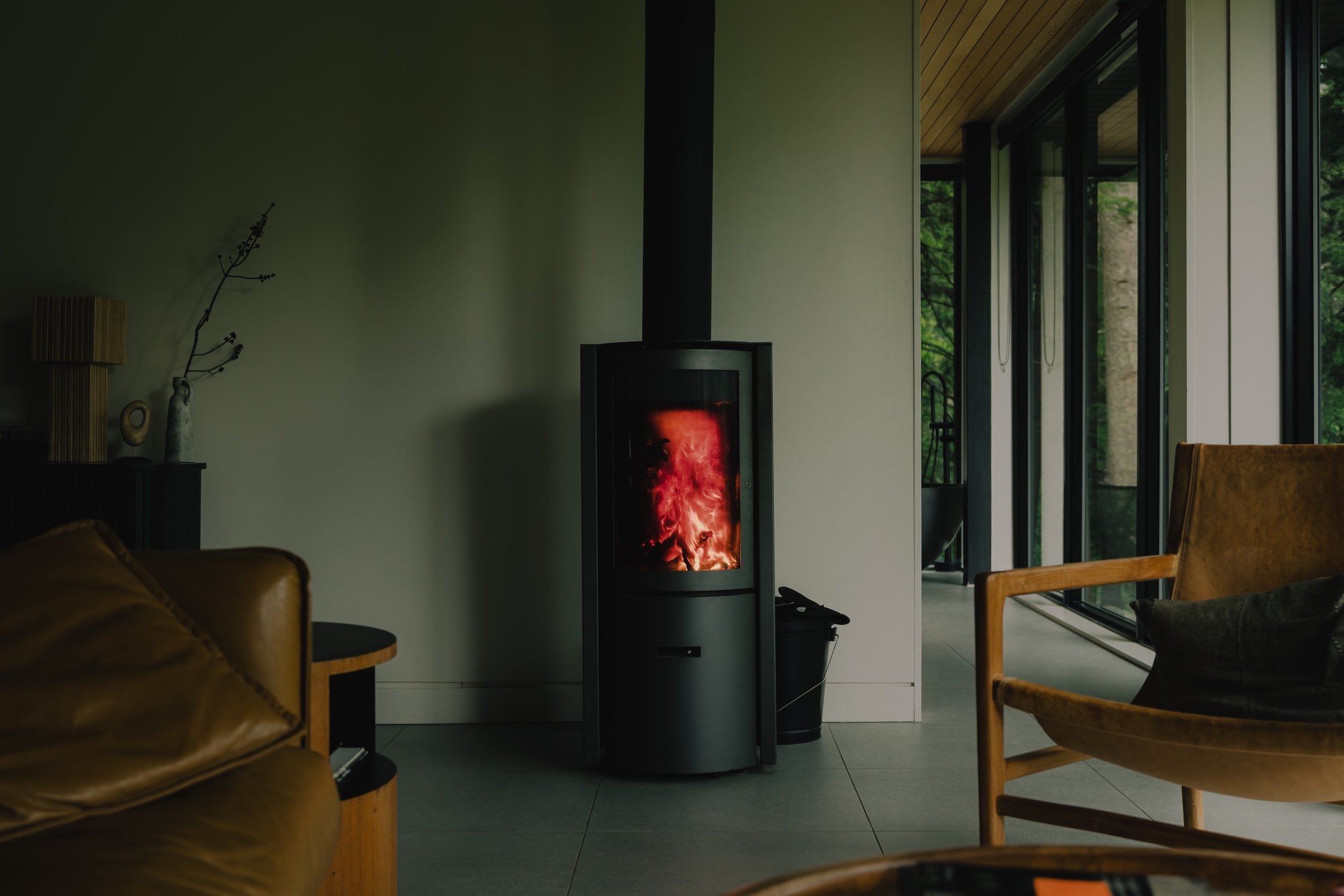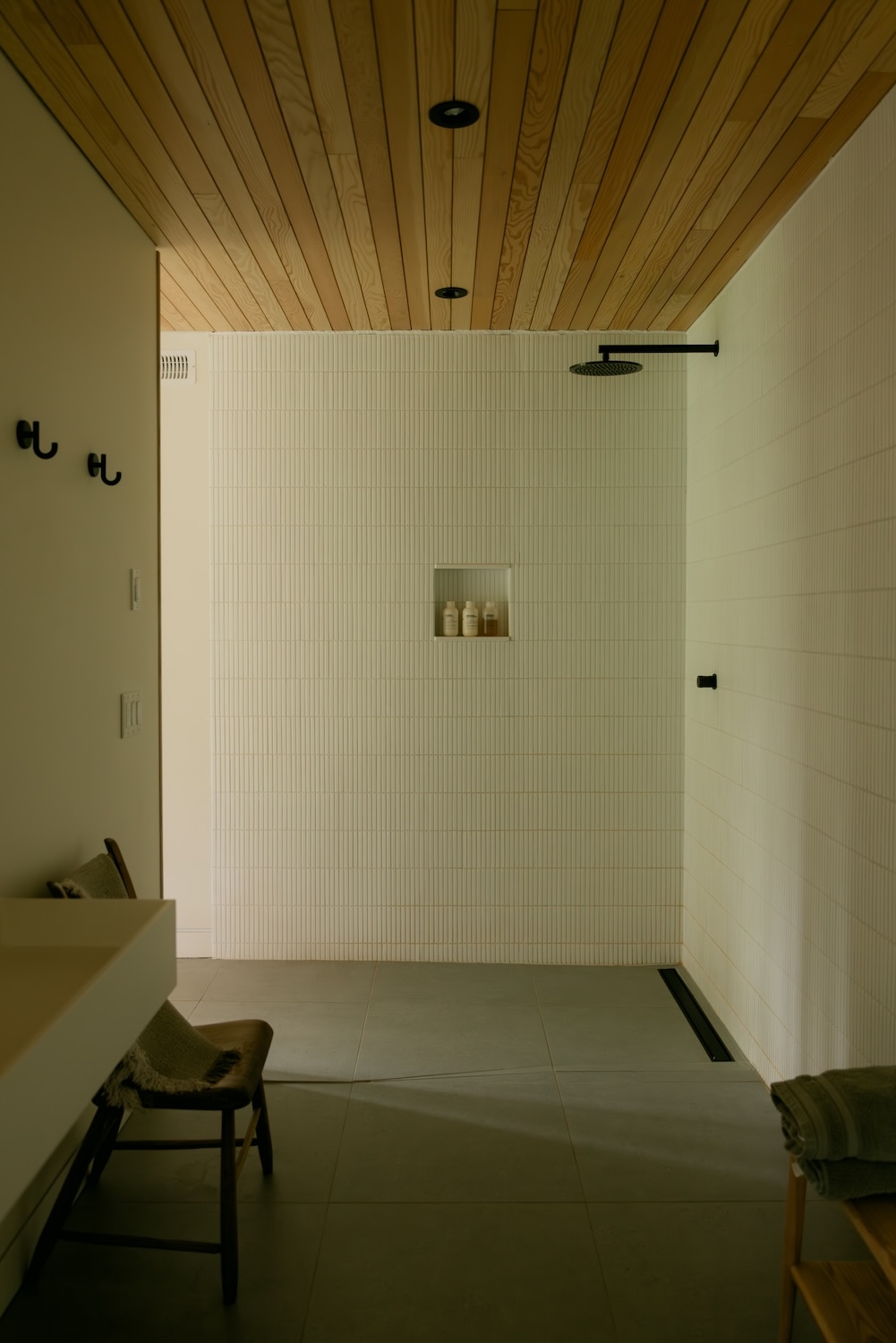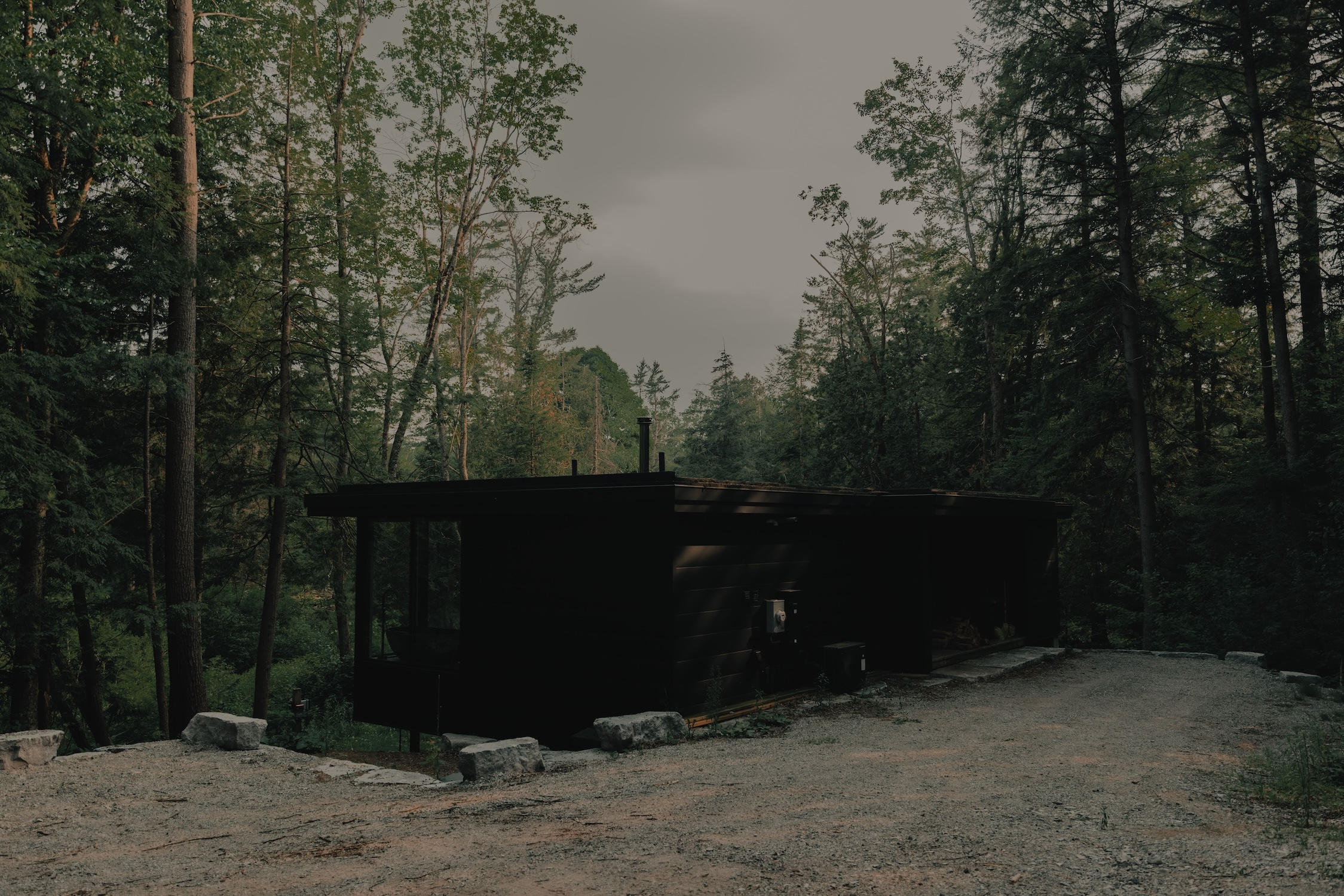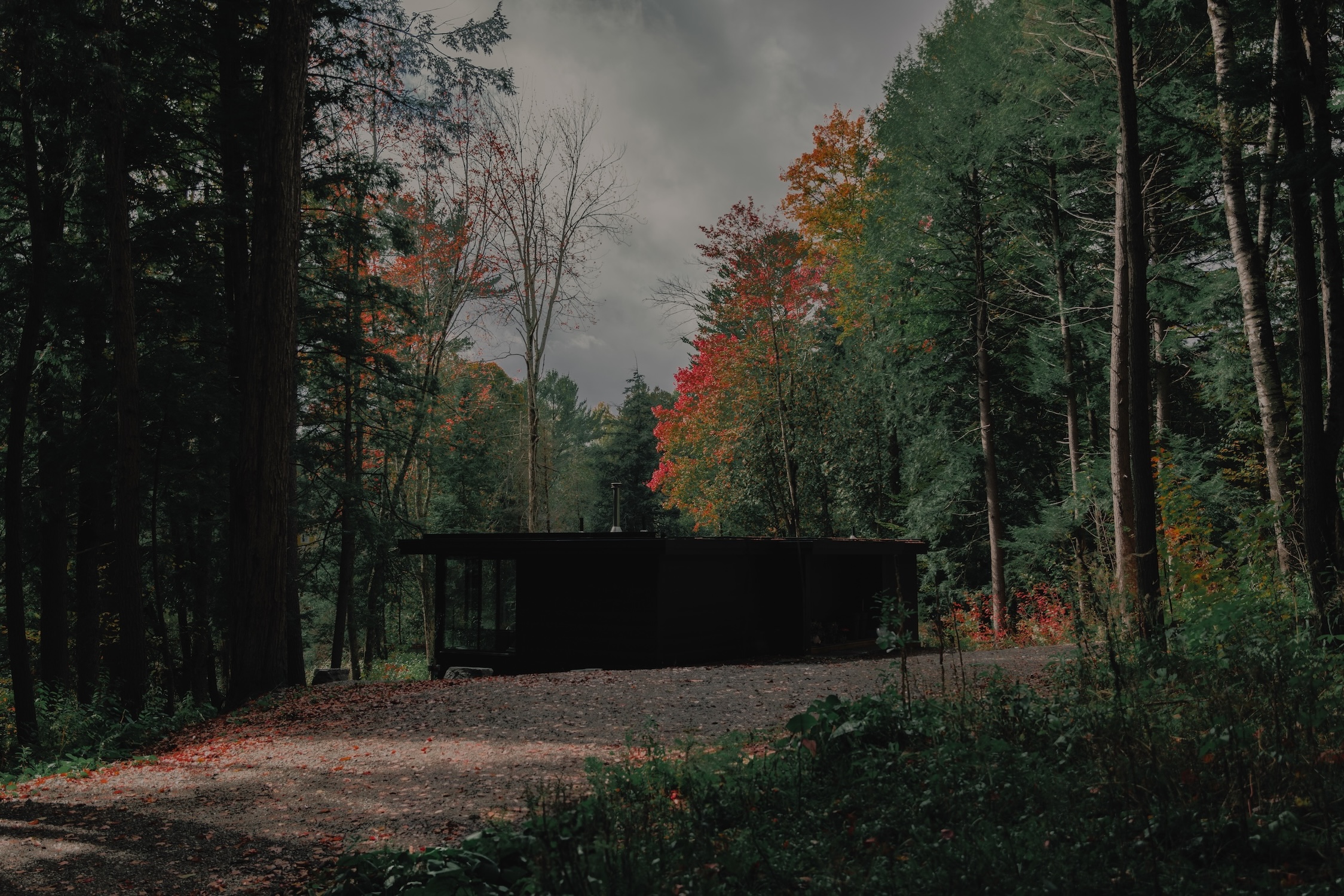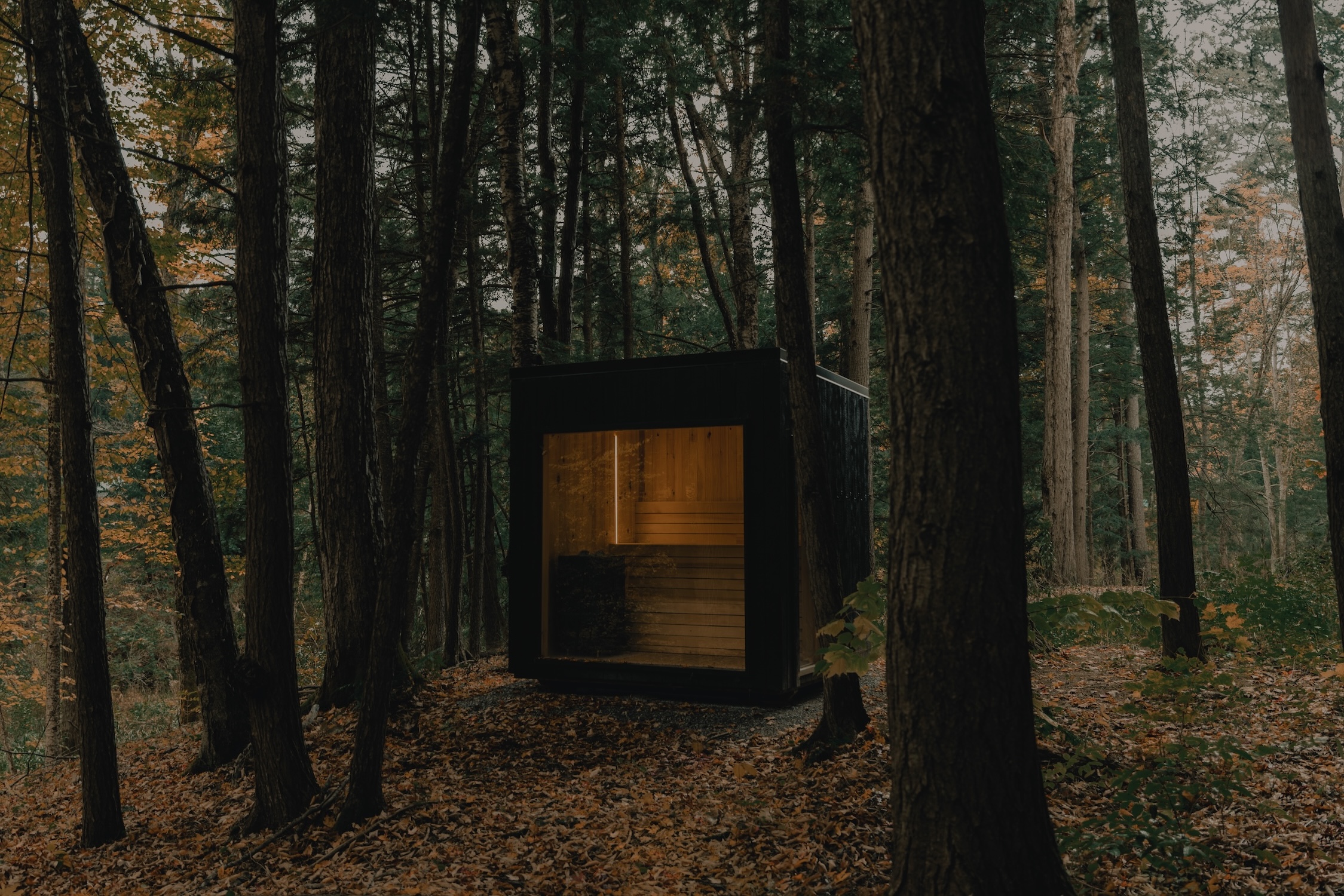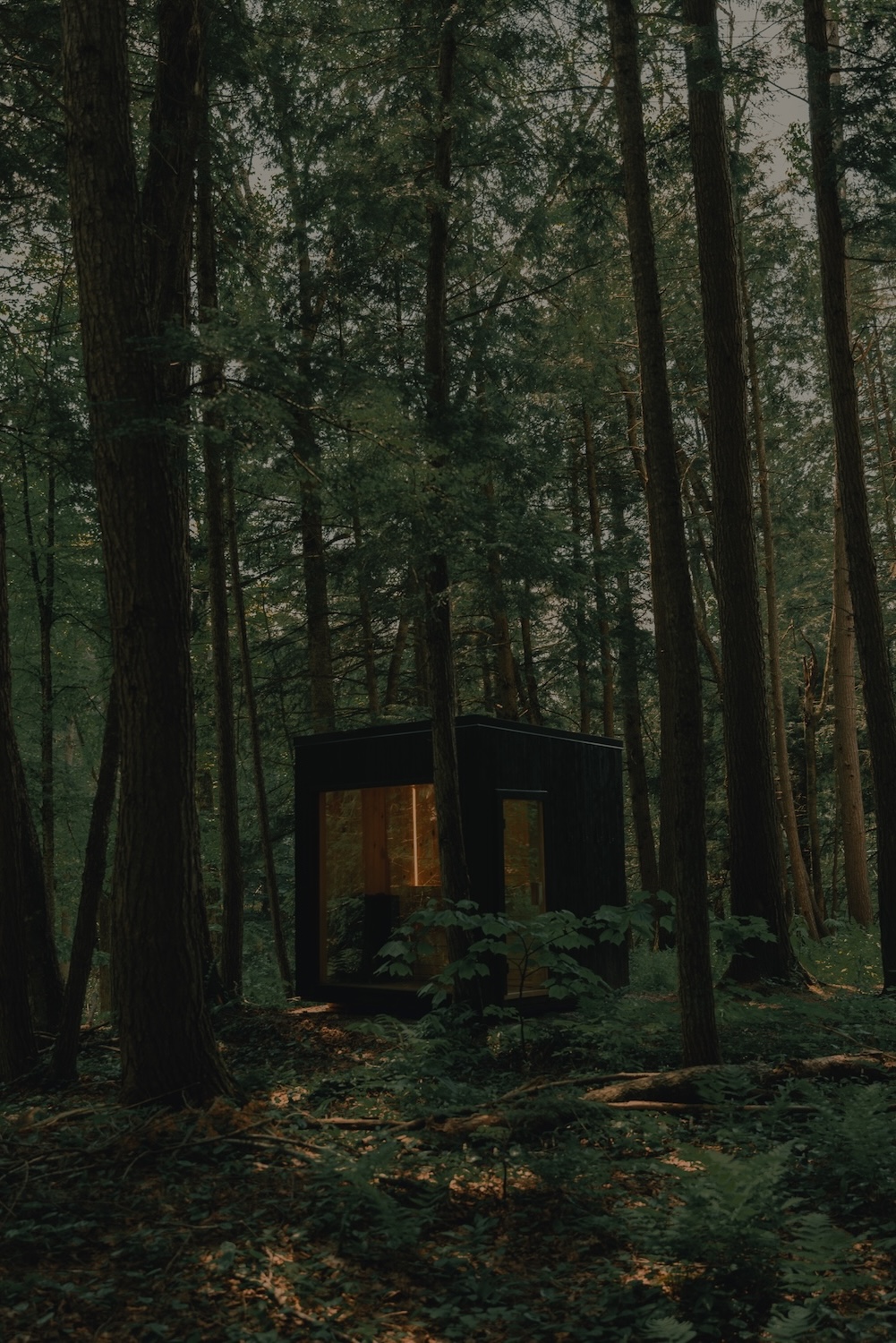Nortehaus is a minimalist boutique guesthouse located a two-hour drive from Toronto in Norland, Canada, designed by MAFCOHouse. What began as one family’s quest to escape Toronto’s relentless pace has evolved into something far more significant – a meditation on how contemporary design can actively resist the forces that fragment our attention. The name itself, a linguistic bridge between Spanish “norte” and German “haus,” signals the project’s central ambition: to create a truly hybrid space that honors multiple cultural approaches to domesticity while remaining rooted in its Canadian context.
The collaboration with MAFCOHouse architects yields spaces that function as carefully orchestrated instruments of deceleration. Each room unfolds with deliberate restraint, where the absence of unnecessary elements becomes as important as what remains. The material palette – dominated by raw timber, natural stone, and expansive glass – creates a sensory dialogue between interior and exterior that recalls the radical simplicity of mid-century Scandinavian design, yet feels entirely contemporary in its execution.
Most striking is how the house’s proportions seem calibrated for human rhythms rather than architectural spectacle. Ceilings hover at heights that invite conversation rather than awe. Windows frame specific views like carefully composed paintings, directing attention toward the changing seasons rather than distant horizons. Even the furniture selection reflects this philosophy of intentional living, with each piece – whether a carefully chosen dining table or a perfectly positioned lounge chair – contributing to an overall composition that prioritizes comfort and contemplation.
The project’s evolution from private retreat to shared experience through the partnership with All Ten Wards represents a fascinating case study in how design values can be transmitted across different contexts. Rather than diluting the original vision, the transition to hospitality amplifies nortehaus’s core proposition: that well-designed space can actively shape behavior, encouraging guests to adopt slower rhythms and deeper engagement with their surroundings.

